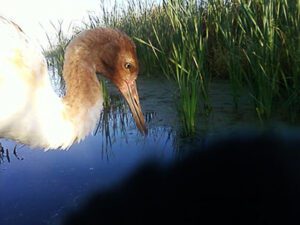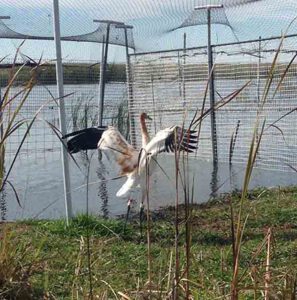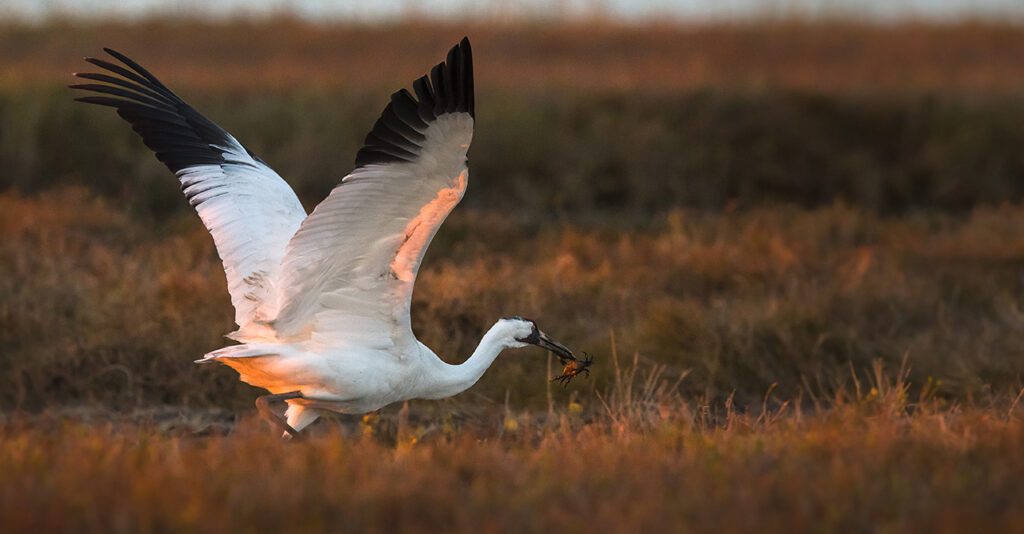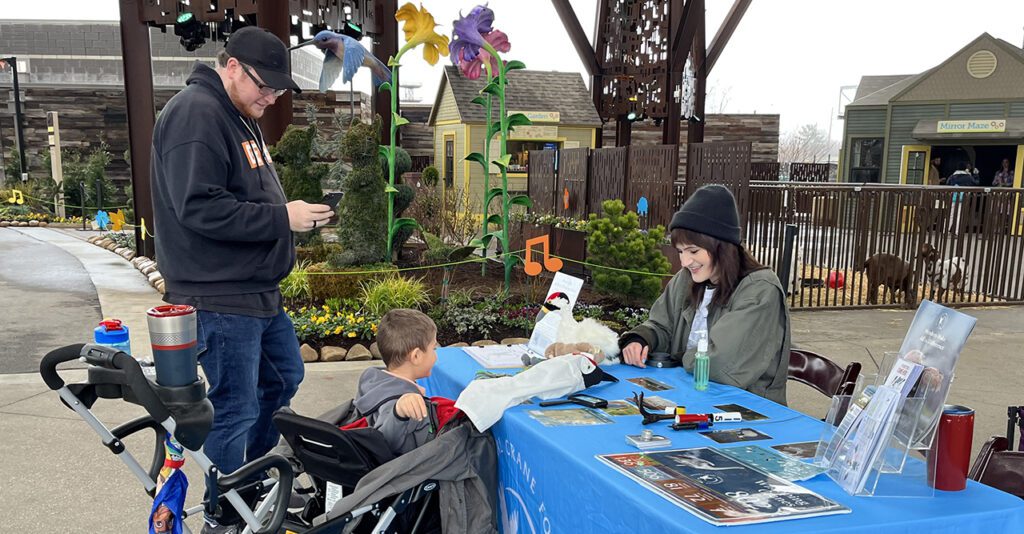A Veterinary House Call to Horicon Marsh
By Alyson Manthei, ICF Veterinary Preceptor
Among the many interesting activities I was involved in during my experience with ICF, traveling to Horicon National Wildlife Refuge (NWR) to examine a Direct Autumn Release (DAR) Whooping Crane chick was a highlight.
On October 10, Dr. Barry Hartup, ICF Director of Veterinary Services, received a call from Kim Boardman, ICF Aviculturist, about Fonzi, a four-month-old female Whooping Crane, who suddenly began isolating herself from the rest of the flock the night before. Upon closer inspection, Kim noticed that her top beak was mildly swollen, and that there was a small gap at the tip between the upper and lower portions. We suspected Fonzi had injured her beak inadvertently. To ensure that no serious fractures or other wounds were present, Dr. Hartup and I drove to Horicon to take a closer look.

We arrived in midafternoon at an isolated portion of the eastern Horicon marsh. To prepare for the examination, we disguised our human forms by putting on gray costumes. The gray costumes are used any time the DAR chicks need to be handled or examined and to the chicks, the gray costumes equal “bad guys”. This method also reinforces the positive relationships the chicks have with the aviculturists dressed in white crane costumes. We walked down a hill in our gray costumes, through a prairie grass and cattail maze to a blind about 100 feet from a pen where all of the DAR crane chicks resided. In the blind, we watched Sara Wendel, DAR intern, entice the other crane chicks to fly away from the pen by running and flapping her arms. After they flew a safe distance away, we prepared the medical supplies and walked through another cattail maze to the outdoor pen. Fonzi was carefully captured and held by Kim while we examined her wounded beak.
![]()
![]()

After examination, we concluded that although her beak was swollen, painful, and bruised, no open fractures were present and that the beak was stable and the small gap at the tip should not present significant problems in the future. After a few days of rest and medication to relieve her pain, Kim reported that Fonzi is back to herself, showing normal behavior (she’s very dominant in the group), probing in the marsh, and ready to practice for migration again!

